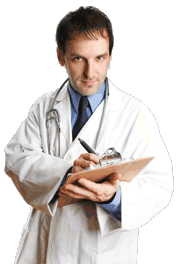At WiseGEEK, we're committed to delivering accurate, trustworthy information. Our expert-authored content is rigorously fact-checked and sourced from credible authorities. Discover how we uphold the highest standards in providing you with reliable knowledge.
What is a Patent Medicine?
A patent medicine is a medicine which is designed to be sold directly to the public, with no prescription required. The term is generally used specifically to refer to the plethora of nostrums which flooded the market during the 18th and 19th centuries before being forced to undergo regulation in the early 20th century. Some patent medicines live on: Lydia Pinkham's Vegetable Compound, for example, and Vicks VapoRub. The vast majority, however, have vanished into obscurity due to tighter regulations on such compounds.
People have been formulating and selling treatments for various diseases for centuries, often with lavish advertising to increase sales of the product. The concept of a “patent medicine” arose in the 1600s, when favored producers of everything from soap to bread could receive “letters patent” from members of the nobility who regularly used the product. The “patent” in “patent medicine” was meant to refer to this practice, not to a literal patent or trademark.

Any number of things could be included in patent medicine, and in some cases these compounds were actually toxic, thanks to the addition of poisonous ingredients. Alcohol was commonly included as a preservative, and many patent medicines hyped exotic-sounding ingredients which may or may not have been included. Because such medicines could be extremely profitable, their formulations were carefully guarded, and consumers had no way of knowing what was inside.
Patent medicines are also sometimes referred to as nostrums. Some of the earliest examples of advertising come from campaigns related to patent medicine. Producers of these compounds would use everything from people dressed up as doctors to faked testimonials to promote their products, with some sending their medicines on tour in traveling medicine shows which included sideshow attractions and lectures about the efficacy of the compound being sold.
The effectiveness of patent medicines was often quite low, despite the high and mighty claims on the packaging. Such compounds were typically not subjected to any testing before being sold, with creators often including ingredients like quinine or menthol for a sharp “medicinal” taste to convince consumers that the medicine was good for them. Many of the conditions patent medicines claimed to treat, such as sore muscles and indigestion, often went away on their own, making it difficult to prove whether or not the medicine had caused the cure.
The patent medicine industry was big business, targeting people at all levels of society. In the early 1900s, however, journalists began to publish exposes on patent medicines, revealing the secret ingredients and expressing concern about the use of potentially dangerous ingredients. As a result, the public grew more aware of patent medicine scams, and several governments passed laws such as the Pure Food and Drug Act in the United States, which created government oversight over ingredients and advertising practices.
AS FEATURED ON:
AS FEATURED ON:










Discussion Comments
When looking through old newspapers, I'll see ads for patent medicines that are hilarious. They have wonderful ads for these things.
The ones that read, "For a young woman's delicate issues that cause ennui" always cracked me up. I could have used some of that stuff (50 percent alcohol) when I was having "delicate issues." I probably would have felt better.
Post your comments